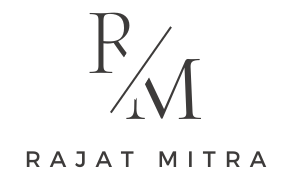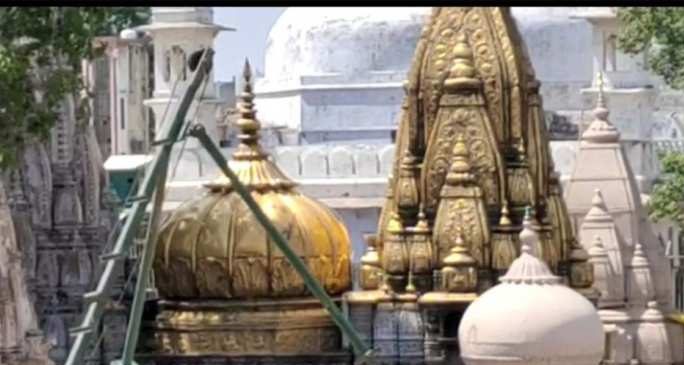As I opened the television there was a debate going on between the Hindu and Muslim spokespersons. The dialogue left me baffled. It was on the survey being conducted in the premises of Gyanvapi Masjid in Benares. The anchor, surrounded on both sides by Hindu and Muslim scholars was talking about the passions it generated. The Hindu side was trying to explain what had happened at a certain period of history while the Muslim side was trying to defend and deny the involvement of any wrongdoing of their ancestors.
As I watched it, another thing seemed to unfold on the screen. It was as if the Hindu side was saying ‘I am fed up of all these lies’. ‘I don’t deserve this history anymore and don’t deserve to be treated as I have been for centuries’. His voice, filled with grief, contained another assertion ‘those who did this to me and my people also don’t deserve their history’. ‘They need to own their wrongdoing and acknowledge it’. It was as if the Hindu side seemed to say that the power and the glory of the symbols and structures of one religion heaped upon him by destroying and razing his structures, has now come to an end.
It was as if he was giving the world a message that the Hindu has finally shaken of his yoke and come to the end of his journey where he accepted all humiliations and now wants to continue his journey with his wound healed.
As I listened, another voice emerged in the debate. It was a muffled fear from the Muslim side that was carefully hidden and covered with denial. It was also false and seemed to have no roots. The fear was palpable and seemed to say ‘now Hindus will do to us what we have done to them for centuries’. His voice seemed to say ‘the present time is a time of redemption whom the hands of destiny cannot hold back’. ‘Every injustice, whether the history of destroying temples or erasing remnants of Hindu culture, demands an explanation and accountability’. ‘That it will soon lead to a fearful space where the suppressed will ask questions’.
The spokespersons’ behaviour seemed to suggest that they had lost touch with reality. It seemed that the spokespersons had lost their inner selves, as if showing they no longer felt safe with the lies they have surrounded themselves with or fed the nation with and which is breaking into pieces. The spokesperson seemed to be saying that my ancestors by destroying the temples has given me an identity and acknowledging it will take that away and which I can’t live without. The dialogue ended with many hidden accusations from one side and a stony silence and aggression from the other.
As a Black writer once said, “No curtain is heavier than the curtain of guilt, one behind which perpetrators in every age have tried to hide.” The curtain of guilt, behind which many in India are trying to hide today, is where the ancestors of a race tried to annihilate a religion, an entire civilization believing one religion alone has the right to exist.
As I watched the debate, it was as if both sides were aware that the history they have been fed is a lie, a bound one that they do not know how to liberate themselves from. On the screen it resulted in a confusion, an incoherence that tried to deal with the buried conscience of the side that destroyed the temples while holding on to denial. At the same time, it held on the fragile lie that seems to be falling apart.
As I heard the Hindu spokesperson confront the Muslim spokesperson, the latter turned from denial and aggression in the beginning to almost making a plea in the end. It was as if he seemed to say, “Don’t blame me for what happened in the past. It was not me but an Emperor who was not my ancestor. I had no role in all this destruction. I bear no responsibility for his or my ancestor’s sins.”
So what does the Hindu and Muslim side do as they stand at a cross roads of history and stare at a shared history full of injustices? When the Hindu side confronts the Muslim side for the wrongs done by their ancestors on his faith centuries ago, what is the Muslim side to do? Will the present moment be a moment of healing and reconciliation between the two communities as deep wounds surface and demand closure? Or will it be also a moment lost to history where denial takes over and a society waits for another time where this issue will raise its head again?
Why is it that three hundred long years have passed without any healing and reconciliation between the two sides? There have been saints and healers who were revered and prayed who could have brought a healing touch. Was it because what they may be saying in the public space, but in the same day, in another gathering and in the most private chamber of their heart, one side remains proud of that history for which they felt no accountability to be given to the other side.
So will the pleading, the denial, the aggression of the Muslim spokesperson now stop the Hindu side from questioning, confronting and demanding answers? A story comes to mind. During the Civil Rights Movement a young man of colour didn’t stop and continued to march towards a White policeman who tried to look threatening and warned him to ‘go away’ if he doesn’t want to get beaten and arrested.
The man didn’t stop but said to the White policeman, “Once a people arise, they never go away.”
We know from trauma psychology that a society raises issues when they feel safe and want to connect to their roots. That is perhaps entire societies raise issues centuries later after the traumatic event shattered their safety.
History is full of many big crimes that were committed by perpetrators who never imagined that it is their descendants who will bear the burden and will have to answer for their sins one day. “The way forward,” as Nelson Mandela said, “is not denial but acknowledging the crime, commit oneself to never repeat it and maintain an inner vigil.”
The Hindu society of today is like that man who had awakened and won’t turn back or go away. He won’t retreat to the safety where he existed with narratives provided for him. He wants answers that he never asked for earlier. It is ‘others’ who must decide what they must say to him now.
Rajat Mitra
Psychologist, Speaker and Author of ‘The Infidel Next Door’

